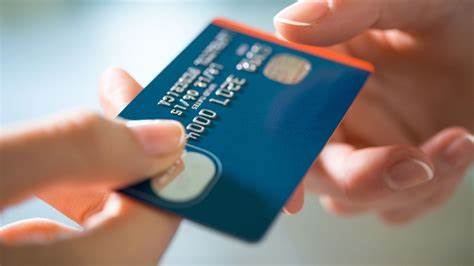If you pay your credit card in full every month, a built-in feature allows you to extend your purchase time without generating interest. secret? A small thing called a credit card grace period.
Simply put, credit cards are more useful than your debit card if you use the right way. Ready for the first card?
1. What is a credit card?
Credit cards look like debit cards. However, when you buy, you don't take out the funds directly from your checking account, but basically accept short-term loans. This loan may or may not be subject to accounting, depending on when you pay off.
For purchases made within any given billing cycle (approximately 30 days), you will have a small grace period before your payment expires. If you pay off the balance on that day, you don't have to pay interest. If you pay less than the full balance before the due date, you will accrue interest on your average daily balance.
2. Why use a credit card?
Credit cards have many benefits. First and perhaps most importantly, using credit cards wisely can help you build credit. Good credit can help you get future loans at a favorable rate, such as a mortgage. It can also help you get approved apartments or mobile phones, avoid utility deposits, and get lower premiums.
Many credit cards will also give you cash back or travel rewards, usually equivalent to 1% to 2% of the amount you spend. Many reward cards offer hundreds of dollars worth of registration bonuses, as well as the benefits of shopping or traveling, which can save you money. Many credit cards have a 0% discount period. When you get a card, check your benefit statement for details.
3. The difference between a secured credit card and an unsecured credit card
A secured credit card is supported by a cash deposit and is usually equal to the credit line of the credit card. This serves as a collateral and reduces the risk of non-payment by the issuing bank. For those who have not yet established a reliable credit history, a secured credit card is a good choice.
The security card is different from the prepaid card. With a security card, your cash deposit will not be used up as you would with a prepaid card. You pay with unsecured cards in the same way that you pay with unsecured cards, and if you don't pay the full amount, you will pay interest. Once you switch to an unsecured card or cancel your secured card, you will receive your deposit as long as you have paid the balance.
Unsecured credit cards do not have a cash deposit or any other collateral as a guarantee. Based on your income level and credit history, you will receive a credit line, so your first card amount is likely to be low. The issuer takes on more risks when approving unsecured cards. Therefore, those who do not have a credit history usually need to start with a secured card or get an unsecured card from a joint signer. Alternatively, you can request a credit account that is added as an authorized user to a relative or friend. As an authorized user, you will be able to use your credit card and may benefit from the good credit habits of the primary cardholder, but you are not legally obligated to pay the balance.
4. How does the grace period work?
One of the many benefits of using a credit card is that you basically get an interest-free loan with a grace period of 21 days and 25 days. The working principle is as follows: Suppose your credit card is valid from January 5th to February 4th, and the due date is March 1st. Any purchase made during this period can be interest-free before the payment due date. However, if you do not pay off your balance on or before March 1, you will owe your average daily balance interest.
5. How to calculate credit card interest
Many people believe that credit card interest is calculated based on the remaining credit card balance after the due date. However, if you do not pay your balance in full, you will accrue interest on the average daily balance for this month.
Suppose you have a card balance of $1,000. On the 11th day of interest bearing, you pay $200. Then on the 21st day of interest, you pay another $350. Your average daily balance is $750.
If the card's annual interest rate (APR) is 20%, the periodic interest rate is 0.0548%. Your periodic interest rate is calculated by dividing your annual interest rate by 365. Multiply your average daily balance by the recurring interest rate and the number of days in the month to get accrued interest for that month. In our case, this is $12.33.
To avoid accruing interest, you will need to pay a new balance on your credit card statement each month. The minimum payment is enough to keep you in good standing, but if you pay for it, paying interest is not necessary.
Keep in mind that if you pay in advance, you may have to pay a higher interest rate and you don't have the benefit of a grace period. If you overdue or spend more than your credit limit, you may also need to pay a higher penalty rate. You can find these alternative rates on the card issuer's website.
6. How to determine the minimum payment amount
The minimum payment amount is the minimum amount you can pay each month, without damaging your payment history and incurring late payment. There are several different ways to calculate the minimum payment amount, but there are two main types:
Percentage method: The issuer can calculate your minimum payment amount based on the percentage of the balance. This is usually between 1% and 3%. So if you have a $2,000 balance and the minimum payment is 2% of your balance, you must pay at least $40 to maintain a good reputation.
Percentage + Interest + Expense Method: Your issuer can also charge a percentage of the amount you owe plus any applicable interest and fees. Suppose you have a balance of $1,000 and an interest rate of 18%, and you pay very late. The issuer may charge you a balance of $10, accrued interest ($14.79) and overdue payment ($35) of 1% of the minimum payment. In this case, your minimum payment is $59.79.
If your balance is relatively low, you may be required to pay a fixed minimum payment, usually between $25 and $35 per month. But we always recommend that you pay the balance before the due date.



